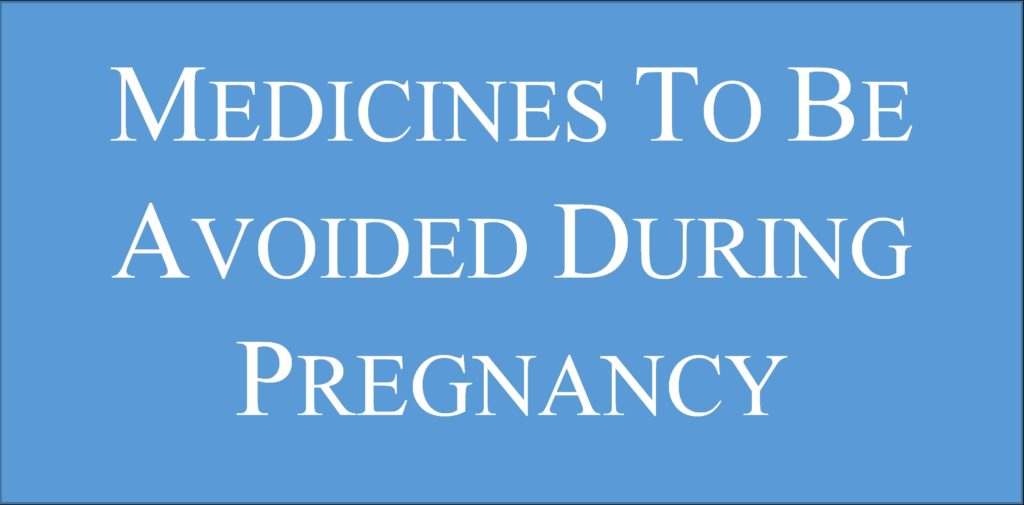Doctors usually tell women to avoid medicines during pregnancy, if possible, especially during the first 3 months. That is when a baby’s organs form. Early in the first trimester, many women don’t yet know that they are pregnant.
While the science is very limited (pregnant women are generally not included in medication safety studies) there are a handful of medications that are considered category X drugs, or drugs that should not be taken in women who are or may become pregnant.
Which Medicines Can I Take During Pregnancy?
Before prescribing any medicine, your doctor or midwife will look at whether the risk of taking medicine is higher than the risk of not treating your illness.
It can be hard to know if a medicine is safe for your baby. Most medicines are not studied in pregnant women, because researchers worry about how the medicines might affect the baby.
If you are planning a pregnancy, talk to your doctor or midwife about any medicines you are taking, including over-the-counter ones. In general, doctors say it is usually safe to take
- Acetaminophen (such as Tylenol) for fever and pain.
- Penicillin and some other antibiotics.
- HIV medicines.
- Allergy medicines (A few).
- Over-the-counter cold medicines (A Few).
- Some medicines for high blood pressure.
- Most asthma medicines.
- Some medicines for depression.
- Some medicines for heartburn.
Which Medicine I Should Not Use During Pregnancy?
Some of the over-the-counter medicines that increase the chances of birth defects are:
- Bismuth subsalicylate (such as Pepto-Bismol).
- Phenylephrine or pseudoephedrine, which is decongestants. Avoid medicines with these ingredients during the first trimester.
- Cough and cold medicines that contain guaifenesin. Avoid medicines with this ingredient during the first trimester.
- Pain medicines like aspirin and ibuprofen (such as Advil and Motrin) and naproxen (such as Aleve). The risk of birth defects with these medicines is low.
Some of the prescription medicines that increase the chances of birth defects are:
- The acne medicine isotretinoin (such as Accutane). This medicine is very likely to cause birth defects. It should not be taken by women who are pregnant or who may become pregnant.
- ACE inhibitors, such as benazepril and lisinopril, which lower blood pressure.
- Some medicines to control seizures, such as valproic acid.
- Some antibiotics, such as doxycycline and tetracycline.
- Methotrexate, which is sometimes used to treat arthritis.
- Warfarin (such as Coumadin), which helps prevent blood clots.
- Lithium, which is used to treat bipolar depression.
- Alprazolam (such as Xanax), diazepam (such as Valium), and some other medicines used to treat anxiety.
- Paroxetine (such as Paxil), which is used to treat depression and other conditions.
I hope this will help you. Please share it with people you care about.

